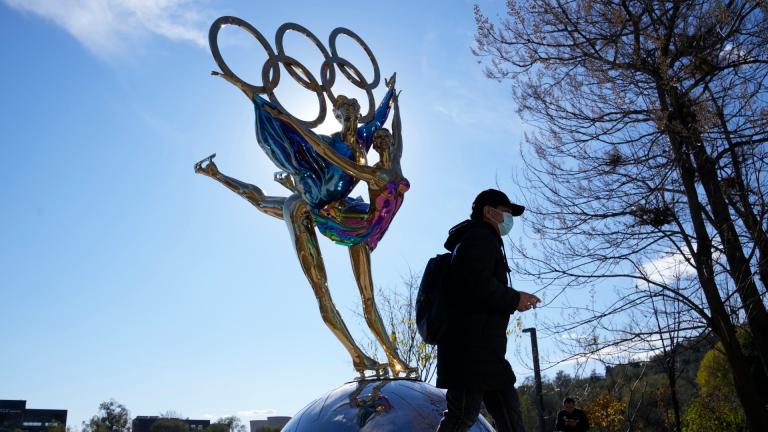A somewhat unconventional Winter Olympics recently took another twist: 15-year-old female Russian figure skater Kamila Valieva tested positive for the use of trimetazidine, a banned performance enhancing substance.
Except, she has been allowed to compete in all her events and there is no clarity on what, if any, consequences she or members of the Russian Olympic Team will face.
David Santee, director of skating at Oakton Ice Arena, says it hasn’t been a level playing field. Santee was the 1981 World Silver Medalist, a seven-time U.S. world team member, and a two-time Olympian.
“There’s so much uncertainty for the other skaters,” Santee said. “If she finishes in the top three, and they don’t have a medal ceremony — what happens if the Japanese skater [Mana Kawabe] comes in 2nd or 3rd — she’s deprived of her medal ceremony because of this whole fiasco ... that’s unfair to her.”
The International Olympic Committee, International Skating Union and the World Anti-Doping Agency challenged the lifting of Valieva’s suspension.
IOC has stated that there will be no medal ceremony for Team Event or Women’s Event should Valieva finish in a top three medal position, or until the whole case is adjudicated.
“That may take months,” said Philip Hersh, a special contributor to NBCOlympics.com and former Olympic sports specialist with the Chicago Tribune. “It’s very possible that she could end up with a reprimand and that could be her only punishment.”
As of now, Valieva is considered a protected skater until she turns 16, according to Santee.
The Court of Arbitration for Sport declined to impose provisional suspension based on three factors: her status as a minor, limited facts, and the time of notification limiting her ability to mount in defense.
“I would think the spotlight would turn squarely on the coach [for consequences], maybe the organization,” Santee added. “Unless you’re looking at some harsh penalty, this is going to continue to go on.”
Dr. George Chiampas, an assistant professor in emergency medicine and sports medicine at Northwestern Medicine, describes trimetazidine as a “newer medication” which is typically used for older patients with heart failure.
“Theoretically it potentially creates greater efficiency of the heart, and then subsequently it delivers more oxygen to the heart and muscles,” Chiampas said. “If you’re an athlete, and specifically an endurance athlete meaning an event that is not a short sprint … something that is 3, 4, 7 minutes or longer, this is where those little edges might make a difference especially when you’re shooting for gold.”
Dr. Chiampas also points to the “alarming” factor that Valieva is a minor -- the youngest age needed to qualify for the Olympics.
“There should be significant consequences because this is a young individual,” Chiampas said. “If this is true, by no means she did this on her own. [It’s] concerning for me as a physician, as a human being.”








